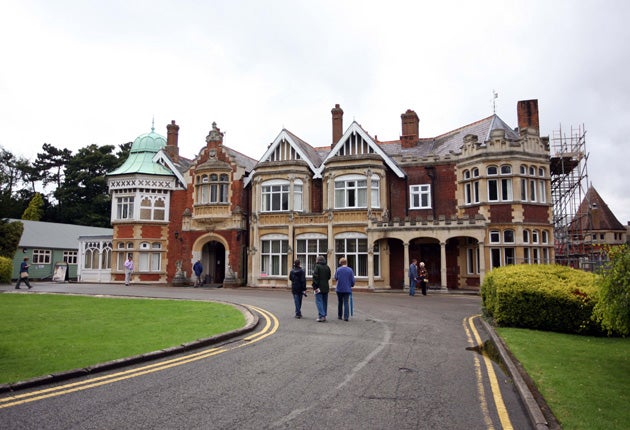Remains of two of Bletchley Park's earliest World War Two buildings are discovered
The brick footings of two huts were revealed as workmen were digging up one of the former code-breaking centre's car parks

Your support helps us to tell the story
From reproductive rights to climate change to Big Tech, The Independent is on the ground when the story is developing. Whether it's investigating the financials of Elon Musk's pro-Trump PAC or producing our latest documentary, 'The A Word', which shines a light on the American women fighting for reproductive rights, we know how important it is to parse out the facts from the messaging.
At such a critical moment in US history, we need reporters on the ground. Your donation allows us to keep sending journalists to speak to both sides of the story.
The Independent is trusted by Americans across the entire political spectrum. And unlike many other quality news outlets, we choose not to lock Americans out of our reporting and analysis with paywalls. We believe quality journalism should be available to everyone, paid for by those who can afford it.
Your support makes all the difference.Remains of two of the earliest World War Two buildings constructed at the British wartime code-breaking centre, Bletchley Park in Buckinghamshire, have been discovered under a car park at the site.
Built in August 1939, the two wooden huts, constructed on brick foundations, were demolished respectively in 1950 and 1986. One was used as a snack shop for wartime intelligence workers, while the second hut was initially used for analysing decrypted Enigma and other German military messages.
The brick footings of the two huts were revealed as workmen were digging up one of Bletchley Park’s car parks as part of a restoration program at the complex. Archaeological investigations will now take place.
The two buildings formed part of the original very small complex at the site which, during the six years of the war, was expanded some 50 fold.
“It is the first opportunity we have had to examine the foundations of the first wartime buildings at Bletchley Park,” said Dr Joel Greenberg, one of Bletchley Park’s historians.
Join our commenting forum
Join thought-provoking conversations, follow other Independent readers and see their replies
Comments